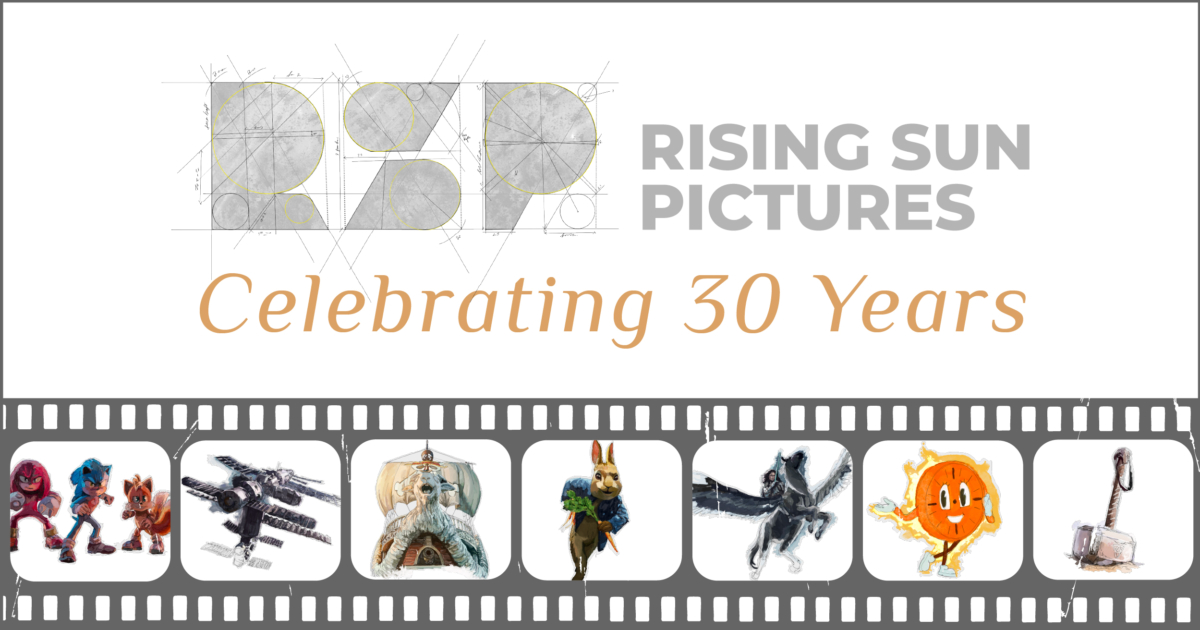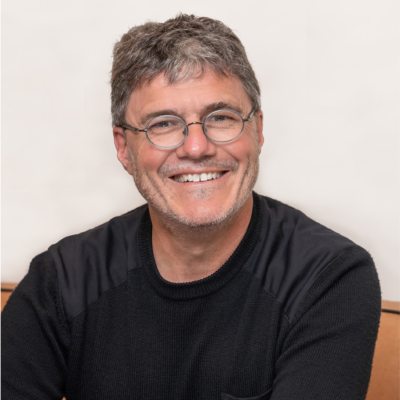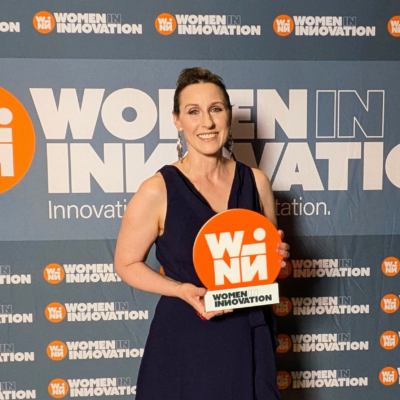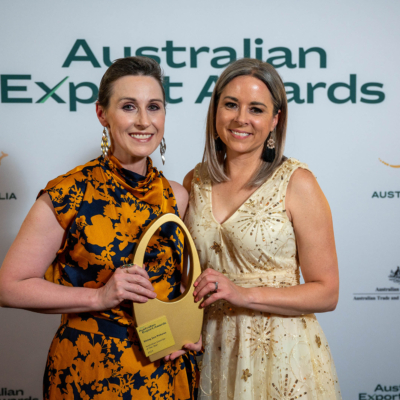30 Years of Rising Sun Pictures

Thirty Years of Rising Sun Pictures: How an Adelaide Idea Became a Global VFX Powerhouse
Rising Sun Pictures (RSP) proudly celebrates 30 years of delivering world-class visual effects to Hollywood. From its humble beginnings, the award-winning studio has grown into a global visual effects powerhouse and a celebrated Australian success story.
RSP’s rise to prominence is no accident. At the core of its enduring success is a unique blend of creative excellence, technological innovation and exceptional leadership. As a trusted creative partner to its clients, the studio is renowned for solving complex creative and technical challenges, continually pushing the boundaries of what's possible in visual effects.
With a rich history of commitment to innovation and market-leading strategies, RSP has helped shape the industry through significant advancements in technology, product innovation, and collaborative techniques. Their focus on research and development has empowered filmmakers to bring ambitious stories to life and raise the bar of visual storytelling.
WHERE IT ALL BEGAN
Founded in 1995 by cinematographer Tony Clark alongside Gail Fuller, Wayne Lewis and Steve Roberts—over a beer at the Rising Sun Inn—RSP was built on a vision that world-class visual effects could be produced from anywhere, even in Adelaide 13,149 kilometres from Hollywood.
“Trust is the foundation of everything we built,” says Tony Clark, Co-Founder. “From day one, we focused on delivering what we promised—on time, on budget, and with the creative ambition our clients expect. That’s why they kept coming back.”
The earlier release of Terminator 2: Judgment Day had sparked a visual effects boom, and RSP was ready to rise to the demand. Amid economic uncertainty, RSP’s first project—a local TV commercial—set the foundation for what would become a legacy of delivering ground-breaking work on over 250 film and series productions.
After working on early local CG animation, RSP secured its first major Hollywood opportunity in 1999 with Warner Bros.’. Red Planet, which was filming in the South Australian outback town of Coober Pedy. Following a successful pitch to acclaimed VFX Supervisor Jeff Okun, RSP was brought onto the project. Impressed by their work, Warner Bros. returned with Queen of the Damned.
Soon after, Paramount Pictures entrusted RSP with the shuttle re-entry sequence for The Core, paving the way for their work on the lead CG character in Charlotte’s Web.
This momentum saw RSP contributing to major blockbusters including Oscar-winning The Lord of the Rings: Return of the King, Oscar-winning Gravity, Batman Begins, Superman Returns, The Hunger Games, Pirates of the Caribbean: On Stranger Tides, The Great Gatsby, and five Harry Potter films.
Didier Elzinga, who joined RSP in 1995 and went on to serve as CEO for 13 years before founding Culture Amp, reflects: “Winning work on The Lord of the Rings: The Return of the King was a pivotal moment for the company. So was our move into the city to expand the team and bring Charlotte to life. The people I met and the lessons I learned during that time continue to shape me to this day.”
As a mid-sized studio, RSP built a reputation for its handcrafted, artist-led approach to visual effects—an ethos that drew ambitious talent from across Australia and around the world. This commitment to creativity and precision saw the studio lead on increasingly complex sequences, including the Oscar®-nominated “Quicksilver Kitchen” scene in X-Men: Days of Future Past.
RSP’s Adelaide location, once considered a barrier for attracting international work, became a strategic asset—fueling innovation, supporting long-term staff retention, and enabling a healthy work-life balance. The studio embraced emerging technologies early, often developing bespoke tools when off-the-shelf solutions fell short.
In 2000, Tony Clark spearheaded the launch of Rising Sun Research (RSR) to commercialise in-house tools developed at RSP. One of its early innovations, cineSpace—a colour management solution essential for matching VFX to on-set photography—was eventually acquired by Cinetal Systems and later THX in 2011. But it was RSR’s flagship product, cineSync, that became a global standard in the industry.
Launched in 2005, cineSync revolutionised remote collaboration by enabling secure, synchronised reviews of footage from anywhere in the world. Quickly adopted by leading filmmakers and studios, it became an industry standard and was recognised with an Academy Scientific and Technical Award in 2011 for its significant impact on global film production.
A year earlier, in 2004, Tony led the development of Cinenet—an elastic broadband network created to give Australian filmmakers fast, reliable access to international partners. By enabling the seamless transfer of massive files between Australia and California, Cinenet dramatically improved connectivity for the local industry.
Together, these groundbreaking innovations marked a turning point for Australia's screen sector. They broke down long-standing barriers, empowered local talent, and helped establish Australia as a competitive force in the global film and post-production landscape.
RSP’s innovation continued to evolve, and in 2019, they introduced REVIZE™ — a groundbreaking toolset that merges machine learning, artistic expertise, and VFX workflows to produce stunning imagery, especially in face and body replacement. Praised by major studios as the industry’s best, the technology has been widely used across numerous high-profile projects.
From the beginning, RSP cultivated a distinctly collaborative culture that encouraged artists to take ownership of their work. "We always believed in giving artists the creative freedom and space to innovate," says Clark.
In an industry often characterised by high turnover, RSP built a remarkably stable and dedicated team. Some employees have been with the company for over 25 years, drawn by its creative challenges and a strong, shared sense of purpose.
In 2001, RSP opened a Sydney office to capitalise on the surge of major offshore productions filming in the city. As part of a strategic decision to consolidate operations, in 2010 the company unified its studios and focused on expanding and strengthening its headquarters in Adelaide. During this time, RSP also installed a state-of-the-art theatre, further enhancing its in-house capabilities.
As RSP’s expertise expanded, the studio attracted an impressive lineup of major clients, including Marvel Studios, 20th Century Studios, Disney, MGM, Universal, Sony Pictures, and Legendary, along with top streaming platforms such as Netflix, Amazon Prime, and Apple TV.
Their work has delivered countless memorable cinematic moments in films like Thor: Ragnarok, Thor: Love & Thunder, Dumbo, Spider-Man: Far from Home, Logan, Elvis, Jungle Cruise, and more recently Sinners, Mickey 17, A Complete Unknown, and Sonic the Hedgehog 3.
To sustain its growth and meet client demands, RSP had to overcome the challenge of sourcing talent. As a people-driven industry, visual effects relies heavily on skilled artists. To address local talent shortages, RSP partnered with the University of South Australia over a decade ago to develop production-ready artists. What began with undergraduate and postgraduate courses has since evolved into a full bachelor’s degree.
Since its inception, the partnership has launched over 250 careers, contributing to the growth of Australia’s talent pool and supporting the global VFX workforce.
In 2021, RSP opened a studio in Brisbane, positioning itself to support the growing film and television production scene in Queensland. "With so many exciting projects and a need for talented people, building a studio around the incredible artists we had already worked with in Brisbane was a natural move," says RSP’s President, Jennie Zeiher. "It also placed us near one of the world’s top filmmaking hubs."
That same year, RSP became part of The Fuse Group (now Pitch Black). After 27 years of being privately owned, this partnership with Pitch Black and EagleTree Capital gave RSP the resources to reach its full potential, all while maintaining a strong connection to its Adelaide roots.
In 2022, after reaching staff capacity at its existing location, RSP expanded into an additional building on Flinders Street in Adelaide, creating space for an extra 80 artists. The new facility also featured two custom-built classrooms for its education program, offering up to 50 students a hands-on experience in a mirrored studio environment, supported by industry artists and mentors.
A few months later, Tony Clark was named a VES Fellow by the Visual Effects Society—the first Australian to receive this distinction. The title of VES Fellow is awarded to individuals who have earned an outstanding reputation through sustained contributions to the art, science, or business of visual effects, as well as meritorious service to the industry over at least two decades. Fewer than 60 individuals globally have ever been honoured with this title.
2022 also marked Zeiher’s appointment as President of RSP. Having played a key role for years in shaping the studio’s operations, governance, and strategic direction, she succeeded Clark in overseeing day-to-day operations and further strengthened RSP’s reputation for innovation and excellence. Under her leadership, the studio embraced machine learning and REVIZE™ was born; driving groundbreaking technological advancements. In recognition of her contributions, Jennie was named the 2024 SA’s Women in Innovation Awards winner in the Technology category.
RSP’s accomplishments have been celebrated both nationally and internationally, earning a wide range of awards and nominations over three decades, including recognition from the VES, AEAF, AACTA, BAFTA and the Academy Awards. This success culminated in 2024 when RSP was named overall Australian Exporter of the Year — the country’s highest export honour. That same year, the company surpassed 400 staff across its Adelaide headquarters and Brisbane studio. With more than three export wins, RSP will be inducted into the Australian Export Awards, Hall of Fame in 2025.
“RSP’s 30-year story is one of grit, determination, people, and innovation” says Zeiher.
As the company celebrates its 30th anniversary in 2025, it’s clear that RSP has not only endured in a competitive industry—it has helped define it.


